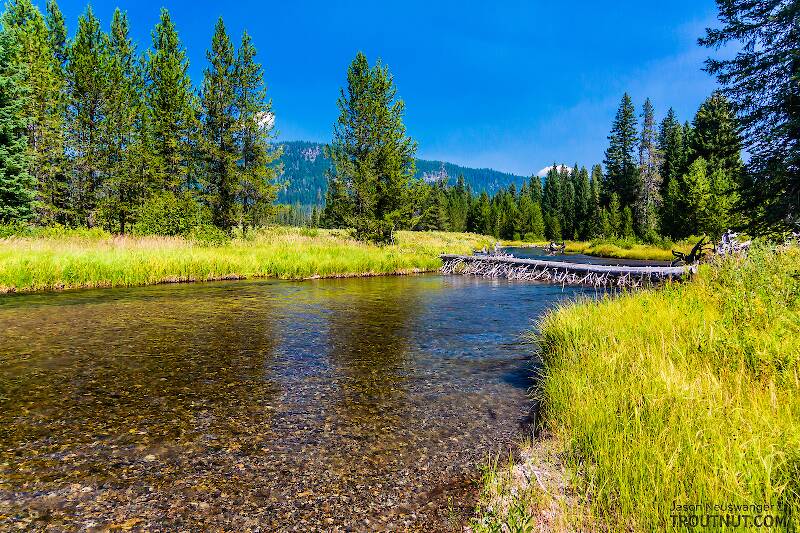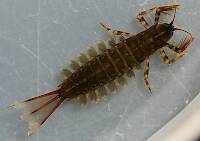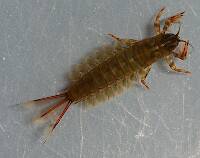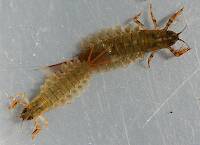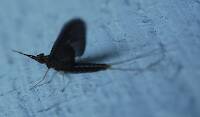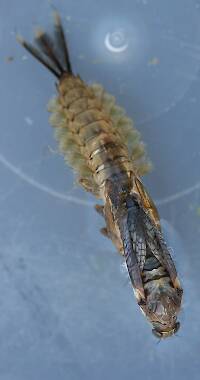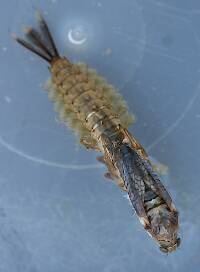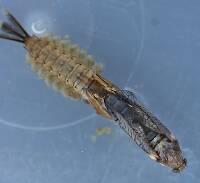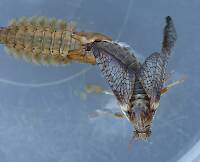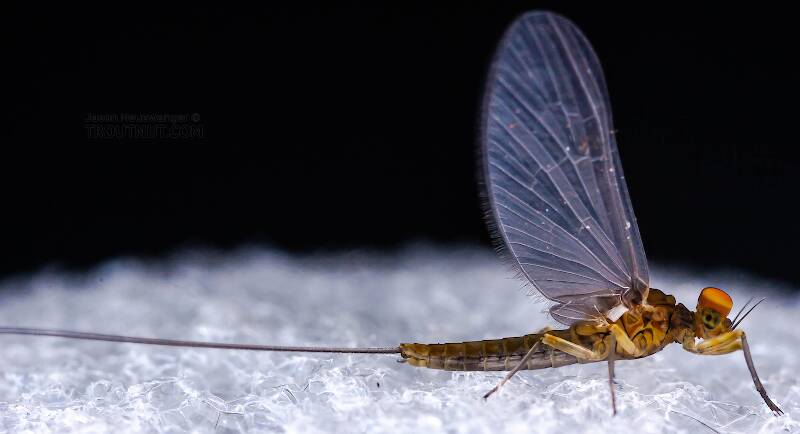
Blue-winged Olives
Baetis
Tiny Baetis mayflies are perhaps the most commonly encountered and imitated by anglers on all American trout streams due to their great abundance, widespread distribution, and trout-friendly emergence habits.
Featured on the forum
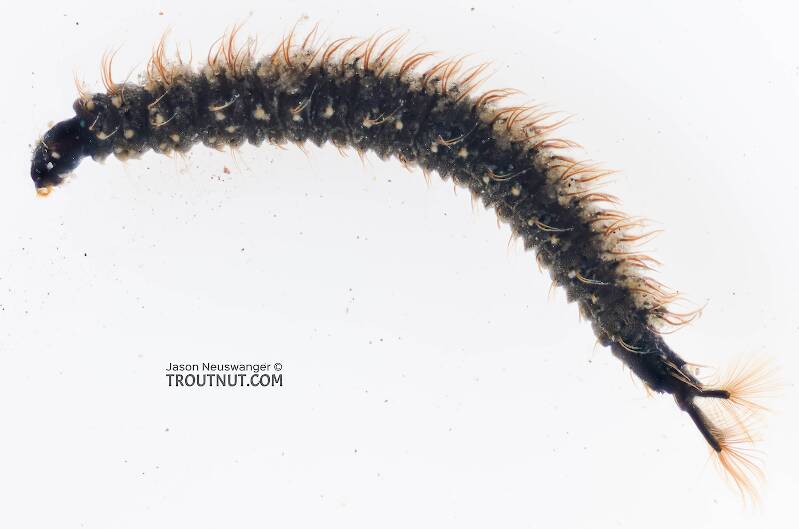
This wild-looking little thing completely puzzled me. At first I was thinking beetle or month larva, until I got a look at the pictures on the computer screen. I made a couple of incorrect guesses before entomologist Greg Courtney pointed me in the right direction with Psychodidae. He suggested a possible genus of Thornburghiella, but could not rule out some other members of the tribe Pericomini.

Troutnut is a project started in 2003 by salmonid ecologist Jason "Troutnut" Neuswanger to help anglers and
fly tyers unabashedly embrace the entomological side of the sport. Learn more about Troutnut or
support the project for an enhanced experience here.
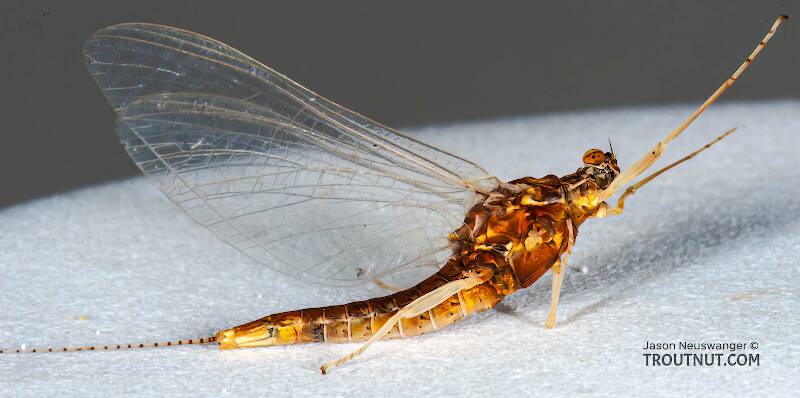
I collected this uncooperative specimen as part of a small cloud of female spinners clustered tightly together high about 10 feet above the water, without any males that I could see.
Troutnut on Jul 3, 2006July 3rd, 2006, 9:24 am EDT
I found her in a small cloud of females about ten feet above the water on June 21st. At the time I assumed she was an Isonychia bicolor spinner, because of the size, the stripe down the back, and the fact that she was flying near my favorite Isonychia pool at the right time of year. The hind wings are quite large, too.
But something just doesn't look right. The front legs should not be so light-colored, and the body proportions, while generally in the ballpark, just don't look quite right. I might even guess that this is some large Ephemerellid.
I apologize for the low quality of the pictures. They were taken at the worst time in my photography development: after my Canon 20D's sensor had accumulated significant dust, but before I learned how to clean it.
But something just doesn't look right. The front legs should not be so light-colored, and the body proportions, while generally in the ballpark, just don't look quite right. I might even guess that this is some large Ephemerellid.
I apologize for the low quality of the pictures. They were taken at the worst time in my photography development: after my Canon 20D's sensor had accumulated significant dust, but before I learned how to clean it.
Jason Neuswanger, Ph.D.
Troutnut and salmonid ecologist
Troutnut and salmonid ecologist
Quick Reply
Related Discussions
Topic
Replies
Last Reply
Re: Lots of new pictures to check out, coming online tonight/tomorrow
In General Discussion by Troutnut
In General Discussion by Troutnut
1
Oct 4, 2006
by Dinerobyn
by Dinerobyn
1
Aug 30, 2010
by GONZO
by GONZO

